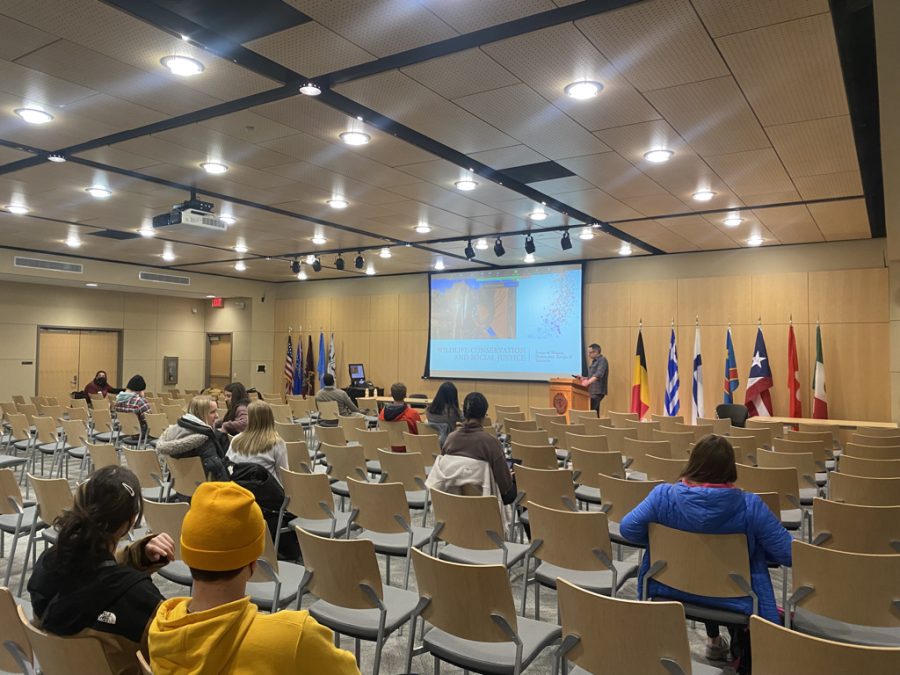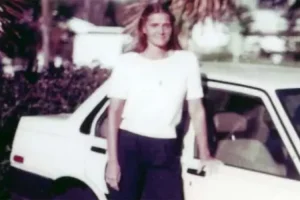Geography and earth science professors Daniel Sambu and Brian Pompeii give presentations during UWL’s Social Justice Week
April 12, 2022
The University of Wisconsin-La Crosse hosted Social Justice Week, starting on April 4 through April 7, 2022. Two of the discussions during this week were Social Impacts of Environmental (In)Justice presented by Associate Professor of geography and earth science Daniel Sambu, and The Social Production of the Great California Drought presented by Assistant Professor of geography and earth science Brian Pompeii. Both events took place on April 6.
The Social Impacts of Environmental (In)Justice presented by Professor Sambu discussed wildlife conversation and social justice in the communities of Maasai, Hadza, and Tatoga in Tanzania. The Maasai, Hadza, and Tatoga communities use hunting and gathering to nourish themselves. The communities rely heavily on natural resources. In 1949, the communities were evicted due to the land they resided on being turned into a national park conservation area.
A conservation area is a large portion of land that is protected and therefore cannot be built on. Community members of Maasai, Hadza and Tatoga are not permitted to hunt nor gather due to the conservation.
Though the citizens are not permitted to hunt on the conservation, there is limited hunting allowed is reserved for tourists. Though these national park conservation areas intended to fund a portion of the communities, and supply them with the goods they lost in the land reallocation, each community has not received payment or goods.
These communities also have ongoing issues receiving adequate health care, education, and drinkable water and the land reallocation has highlighted these problems and made sustainable living more difficult.
Some solutions the government offers to make life more sustainable are through providing those who are forced to give up their land jobs to build tourist lodges, as well as allowing communities to sell jewelry to tourists. Though many non-governmental organizations provide resources to the Maasai, Hadza, and Tatoga, there are many other ways the people of these communities’ lives could be improved.
In the second presentation, Assistant Professor Pompeii introduced his presentation titled The Social Production of the Great California Drought. Pompeii discussed how within his research, he studies hazards and the social impacts of hazards. In California around 2015, there were record lows of precipitation. Professor Pompeii discussed the social conditions of the drought including how it disproportionally affected marginalized groups and how families coped with lack of water as well as how institutions responded to the hazard.
Within the San Juaquin Valley, the bureau of reclamation created the Central Valley Project. The Central Valley Project established a series of canals and aqueducts in order to transfer water from the north to the dryer south. Within this time, the farmers began resorting to the ground for water. Within his research, Pompeii found a correlation between the drilling of new agricultural wells and domestic well failure.
As the drought continued to affect those in California, Professor Pompeii discussed a few details that contributed to the social conditions of the drought. First, he pointed out how often residents in Tulare County were reluctant to seek assistance because of their undocumented status. Additional details that led to the condition of the drought were that renters were prohibited from having tanks installed on property if they did not own it. The final aspect that contributed to the lasting effects of the drought was the delayed response which led to increased drought exposure.
In order to tackle the drought, non-profits like United Way distributed bottled water, established community showers, and provided household owners outdoor water tanks but forced renters to pay five thousand dollars for installment. According to Professor Pompeii, “In America, we have socialism for the rich but for the poor, we have rugged capitalism.” Professor Pompeii ended his discussion by calling on the government and non-profits to tackle these types of problems with greater dexterity and compassion.
For more information on both events, email Professor Sambu ([email protected]) and Professor Pompeii ([email protected]).






